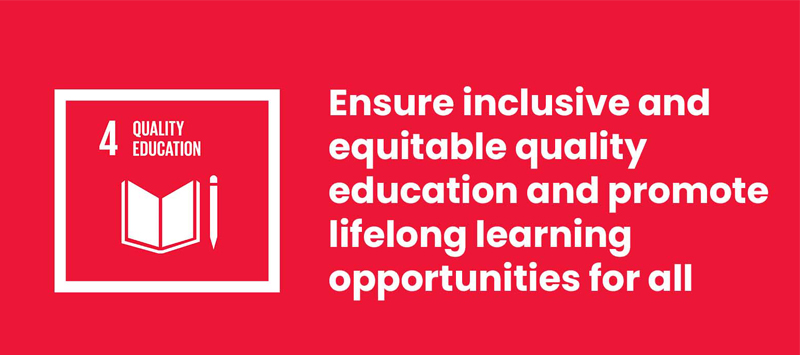
SDG4: Quality Education
 |
Sai Spoorthy 24COMD56 Department of Commerce (UG), Kristu Jayanti College, Autonomous |
Quality education is essential for personal growth and societal progress, going beyond just enlightening knowledge. It helps build critical thinking, creativity, and life skills, preparing individuals to adapt to the complexities of a constantly evolving world. Quality education ensures that every person, regardless of gender, background, or disability, has access to learning opportunities. This inclusivity removes barriers, allowing underprivileged groups to escape poverty and create better futures. A quality education includes a balanced and relevant academic framework. It needs to cover not just traditional subjects but also essential skills like problem-solving, communication, and collaboration necessary for personal and professional success. Learning materials, including textbooks, technology, and interactive tools, must be up-to-date and accessible to meet different learning needs and styles. Teachers play a crucial role in teaching or developing quality education. We need to be supported through ongoing training, resources, and motivation, ensuring they are equipped to meet the various needs of their students.
The environment where students learn should be safe, accessible, and resource-rich, allowing them to engage with their education fully. Additionally, assessment methods should focus on understanding how well students can apply knowledge rather than just memorizing facts. This encourages personal growth and deeper learning. Quality education also brings out critical thinking, encouraging students to question ideas, challenge assumptions, and engage with different perspectives. This kind of education empowers individuals to be responsible, informed citizens who can actively contribute to their communities and society. Beyond the individual, quality education benefits society as a whole by fostering economic growth, improving job prospects, and promoting stability and innovation.
Educated individuals are likelier to participate in democratic processes and work toward sustainable development. Despite its significance, many face barriers to accessing quality education. These barriers include limited funding, the political instability that prevents certain groups from learning, and the growing digital divide that leaves many students without the necessary technology for modern education. Overcoming these challenges requires collaboration between governments, institutions, and communities to ensure education is accessible and equitable and that everyone is empowered to reach their full potential.